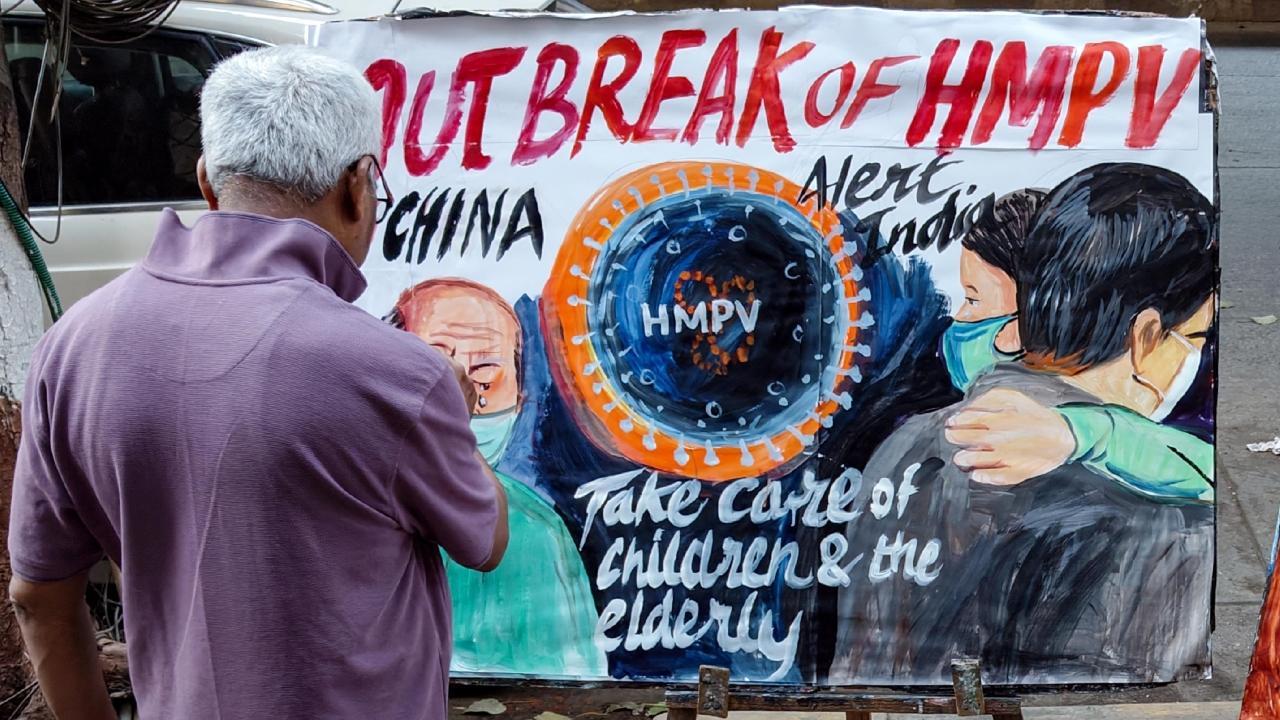HMPV, which belongs to the same family as the respiratory syncytial virus, causes flu or cold-like symptoms including fever, cough and nasal congestion

Representational Pic/File/AFP
The rate of infections with the flu-like human metapneumovirus (HMPV) in northern China is declining, a health official said Sunday, amid some international concern over a potential pandemic.
ADVERTISEMENT
HMPV, which belongs to the same family as the respiratory syncytial virus, causes flu or cold-like symptoms including fever, cough and nasal congestion. The symptoms often clear up by themselves, though they can cause lower respiratory tract infections among children, older adults and those immunocompromised.
"The human metapneumovirus is not a new virus, and has been with humans for at least several decades," said Wang Liping, a researcher at the Chinese Center for Disease Control and Prevention, during a press briefing by China's National Health Commission.
Wang added that the increase in recent years in the number of cases of the virus, first detected in the Netherlands in 2001, is due to better detection methods.
"At present, the rate of positive cases in human metapneumovirus detection is fluctuating, and the rate of positive cases in northern provinces is declining, and the rate of positive cases among patients aged 14 and below has started to decline," she said.
Concerns surfaced in recent days over a surge in HMPV infections in northern China after images circulated online of hospitals overrun with masked patients. The World Health Organisation said it has not received reports of unusual outbreaks in China or elsewhere.
Experts say HMPV is unlike COVID-19 in that it has been around for decades and there is some built-in immunity to it. Most children are infected with the virus by the age of 5.
Wang said respiratory diseases currently affecting people in China are caused by known pathogens, and no new infectious diseases have emerged.
The number of patients in fever clinics and emergency departments across the country has been rising but is still generally lower compared to the same period last year, said Gao Xinqiang, deputy director of the Department of Medical Emergency Response of the health commission.
"There is no obvious shortage of medical resources," Gao said.
Flu infections across the country are expected to gradually decline in mid-to-late January, said commission spokesperson Hu Qiangqiang.
There are no vaccines or drugs available for HMPV. Experts recommend precautions against catching the virus and other respiratory diseases including washing one's hands regularly, avoiding crowds if possible, and wearing a mask in crowded places.
This story has been sourced from a third party syndicated feed, agencies. Mid-day accepts no responsibility or liability for its dependability, trustworthiness, reliability and data of the text. Mid-day management/mid-day.com reserves the sole right to alter, delete or remove (without notice) the content in its absolute discretion for any reason whatsoever
 Subscribe today by clicking the link and stay updated with the latest news!" Click here!
Subscribe today by clicking the link and stay updated with the latest news!" Click here!







